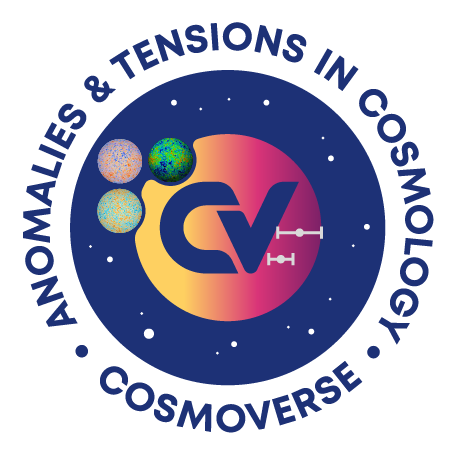What is your name, affiliation, academic position, and job title?
William Giarè, Research Associate at the University of Sheffield.
What is your journey? (Where did you live, learn and work?)
I am originally from Rome, where I studied and obtained my bachelor’s degree in Physics, followed by a master’s degree in theoretical physics and a PhD in Astrophysics, all from Sapienza University. After my PhD, I moved to Florence where I held a postdoctoral research fellowship at the INFN Centre for advanced studies, the Galileo Galilei Institute for Theoretical Physics. I subsequently moved to the United Kingdom to join a postdoctoral research associate position at the University of Sheffield
What is your field of research and/or what project are you involved in?
My primary research field is cosmology, but my scientific interests are very diversified. In a Venn diagram, they would fall at the intersection between cosmology, astrophysics, and particle physics.
What are your research plans?
My research lies at the interface between theory and data. I’m working on the possibility of using current (and eventually future) cosmological and astrophysical observations to test and constrain new physics. For this reason, I’m broadly interested in statistical methods for cosmological and astrophysical data analysis, computational and numerical tools of cosmology, and any well-motivated theoretical extensions to fundamental physics that can be tested with those techniques.
How does CosmoVerse fit within those plans?
CosmoVerse provides a collaborative environment where researchers from different backgrounds can interact together and explore new ideas for solving cosmic tensions. These include considering new physics beyond the standard cosmological model and testing it against observational data, which happens to be exactly what I usually do.
Which of your skills are you most proud of, or find most useful?
When I’m with theorists, they tell me I’m too focused on data analysis and coding, and when I’m with data analysts, they say I’m too focused on theory. However, when I’m in the same room with both, we usually end up starting a new research project! This back-and-forth interplay between data, coding and theory is something I really like about my research activity.
What are the most exciting open questions in your research area?
Although in recent decades our understanding of the Universe has experienced a revolutionary level of advancement, I think it remains incomplete and far from exhaustive. Fundamental questions about its origins, composition, and evolution still lack clear answers. For instance: what are Dark Matter and Dark Energy? What is the physics beyond inflation? Is there any primordial tensor mode out there? Can missing ingredients in the theoretical model be responsible for the observed cosmic tensions?
What advances or new results are you excited about or looking forward to?
I am very excited about the forthcoming astrophysical and cosmological data releases expected by current and future experiments such as ACT, SPT, DES, DESI and eventually Euclid, LSST, stage-4 CMB surveys, and gravitational waves experiments. They will offer us a unique opportunity to learn more about our Universe
What is your view on cosmic tensions? How does your work connect with this open question in the community?
As a cosmologist, I am interested in understanding the physics that governs our Universe. To do so, I rely primarily on observations, using cosmological and astrophysical data to keep questioning and testing models and theoretical frameworks, no matter how well-established they are. However, as we continue to collect and analyze data, we sometimes encounter tensions or discrepancies between our models and observations, or among different experiments. Excitingly, tensions can be indications that our current understanding of the Universe is incomplete and that we need something new. On the other hand, collecting data can be also very tricky and sometimes observational systematics and statistical fluctuations can play a nasty joke. For this reason, I consider cosmic tensions an open problem for the community. The first step for solving any problem is to acknowledge its existence. It is good to say that we have taken this step seriously, and we are now collectively trying to figure out what’s wrong with cosmology (if any!).
What role do you think a community network like CosmoVerse can play in developing theoretical astroparticle physics and cosmology?
Communities like CosmoVerse are very important to bring people with quite different backgrounds and expertise together and to remain up-to-date with the developments happening in research fields other than ours. They also offer a good opportunity for networking and starting new collaborations which is particularly important, above all for early carrier scientists.
What is your favourite scientist and/or science fiction film?
Should I say “Sheldon Cooper” to answer both? Anyway, I don’t have a favourite scientist because I think that science is never an individual effort. However, I find the work and the story of certain scientists absolutely inspiring. Among them, I would like to mention Galileo Galilei, Marie Curie, and Emmy Noether.
Is there a specific question you would have liked us to ask? If so, what would your answer have been?
Did you enjoy answering this interview? Yes, it was great, thank you for the opportunity!

